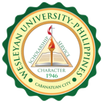 In line with its mission of empowering communities and fostering sustainable development, Wesleyan University-Philippines (WUP) welcomed its partner communities by providing them with an avenue to showcase and sell their locally made products to the University community.
In line with its mission of empowering communities and fostering sustainable development, Wesleyan University-Philippines (WUP) welcomed its partner communities by providing them with an avenue to showcase and sell their locally made products to the University community.
On September 25, 2025, partners from Sta. Monica, Aliaga, Nueva Ecija brought fresh vegetables, salted eggs, and fermented rice (buro). This was followed by the community of Sta. Lucia Old, Zaragoza, Nueva Ecija, on September 29, 2025, who offered a wide variety of products, including fresh vegetables, native delicacies (kakanin), doormats (basahan), and traditional brooms (walis).
These individuals from the partner communities were some of the recipients of livelihood capital from WUP intended to support their small-scale enterprises. On May 26 and 28, 2025, an initial batch of 10 beneficiaries—five from Sta. Monica and five from Sta. Lucia Old—each received ₱2,500 as seed capital. A second batch was released on September 10, 2025, with 20 additional beneficiaries, 10 from each barangay, also receiving ₱2,500 each.
“This initiative reflects WUP’s continuing commitment to support its partner communities by helping them promote sustainable livelihood and strengthen their economic resilience. By providing both financial support and a market space for locally produced goods, the university not only fosters entrepreneurship but also reinforces its partnership with communities through shared opportunities,” cited Dr. Eufemia C. Ayro, Wesleyan External Systems, Connections, Opportunities, and Partnerships (WESCOP) OIC-Director.
This initiative would contribute to the advancement of several United Nations Sustainable Development Goals (SDGs). By creating income opportunities for local families, it directly addressed the goal of ending poverty (SDG 1). At the same time, the promotion of entrepreneurship and community-based industries supported decent work and economic growth (SDG8). Strengthening the capacity of Sta. Monica and Sta. Lucia Old to be self-reliant fostered more sustainable and resilient communities (SDG 11). The emphasis on locally sourced, eco-friendly products reflected responsible consumption and production (SDG 12).
Finally, the collaborative effort between WUP and its partner communities demonstrated the spirit of partnership that lies at the heart of SDG 17.
It also highlighted that WUP continued to live out its calling of service, empowerment, and faith-driven community engagement, helping partner communities move toward a more sustainable and dignified way of living.
Article by ECA
Photos courtesy of WESCOP

